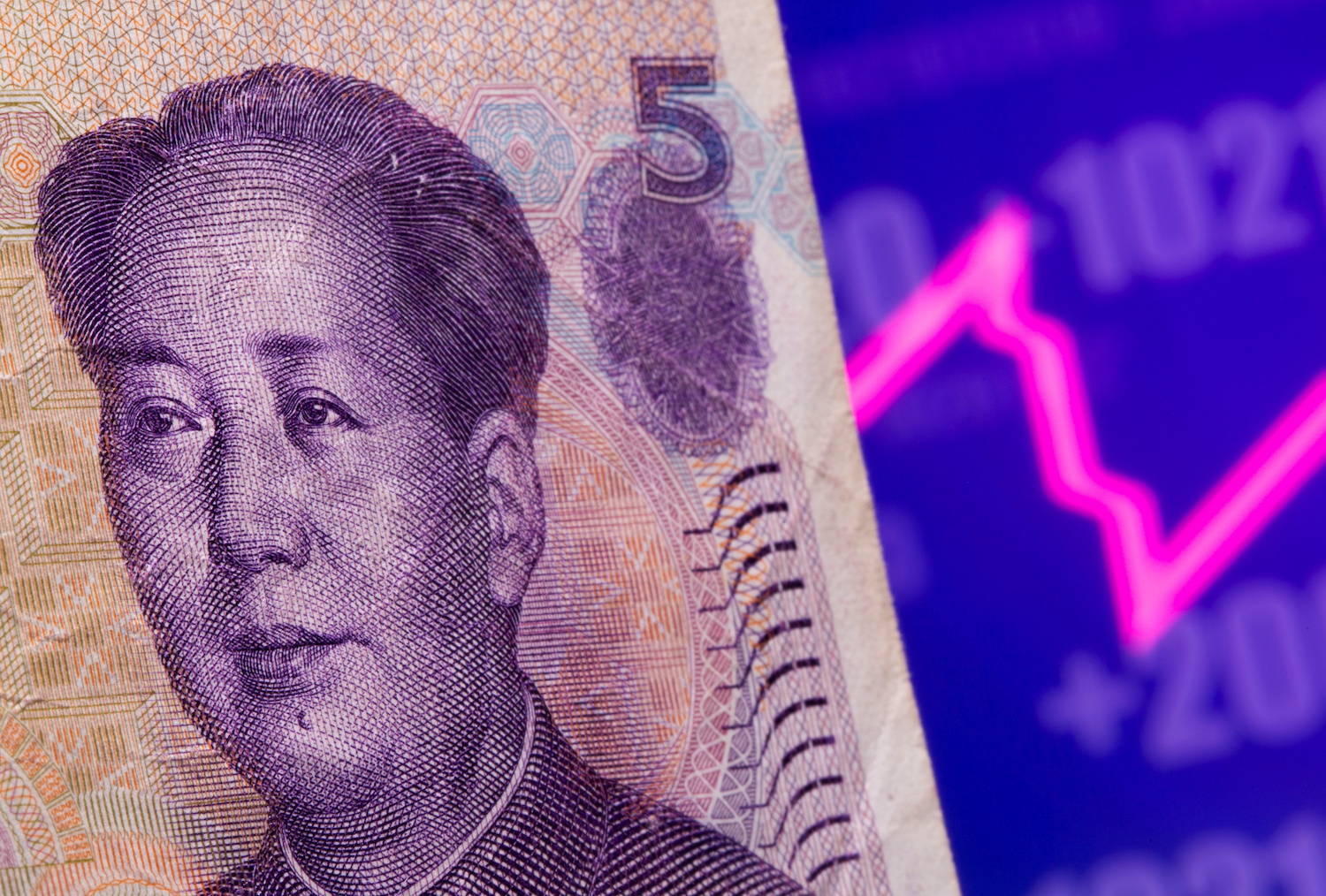The PBoC has a delicate path to tread – on the one hand it’s desperate for its currency to be seen as an authentic dollar rival but it can’t help worrying that a runaway yuan could prove expensive in the long run
China has reiterated its commitment to a softly softly approach in its efforts to curb the yuan’s continued surge, as it carefully plots its currency’s rise to the top of the global tree.
Beijing is set to rely on just the lightest of touches to slow the yuan down and deter speculators and help its exporters, shunning drastic measures that it fears could undermine its goal to liberalise its currency, policy sources said.
The yuan has gained almost 12% against the dollar since May 2020 as China leads other economies in its recovery from Covid-19 and the dollar weakens, though it has been driven more recently by foreign fund inflows into yuan-denominated bonds and stocks.
Also on AF: India joins global undersea cable race with Reliance Jio’s help
But it slipped more than 0.5% this week as Beijing has mounted a coordinated effort to talk down expectations of further gains. A flurry of official statements have warned against speculating on the currency and regulators have taken steps to stem its rise.
The People’s Bank of China (PBoC) has ample tools to cool one-way currency bets and fend off hot money inflows amid worries over asset bubbles, but will tread cautiously to avoid spooking investors, said the policy sources, who advise the government.
The PBoC, under reform-minded governor Yi Gang, has been trying to give market forces a greater role in steering the yuan, part of longer-term reforms to make it a more international currency, they said.
“The yuan’s appreciation will test the PBoC’s market-based approach but policy tools at the PBoC’s hands will be enough to cope with it,” said a source.
MANAGED REGIME
The PBoC said it will not “use the exchange rate as a tool”, and reiterated its managed floating currency regime based on market supply and demand and with reference to a basket of currencies.
“The attitude of the PBoC on the exchange rate goal is consistent and clear, that is, no one can accurately predict the trend of the exchange rate, the uncertainty of the exchange rate is inevitable, and two-way fluctuations are normal,” it said.
Policymakers fear rapid yuan gains could lure more speculative money into everything from property, to stocks and commodities, fuelling asset bubbles, with any sudden reversal of the inflows potentially harming the economy.
EXPORTS IMPACT
They also worry about the impact on Chinese exports, which remain strong for now but could lose steam in the second half of the year as factories in other countries recover from the pandemic.
“We cannot allow one-way yuan appreciation. Otherwise there will be a vicious cycle as more capital inflows drive appreciation, and more appreciation boosts inflows,” Xu Hongcai, deputy director of the economic policy commission at the China Association of Policy Science, said.
“Eventually, this could lead to domestic inflation and asset bubbles and affect domestic monetary policy. Too much appreciation will be unfavourable for financial stability and unfavourable for exports.”
THREE-YEAR HIGH
The yuan is hovering near a three-year high against the dollar, and has recouped pretty much all its losses since the start of the Sino-US trade war in early 2018. It is also near its strongest level versus a basket of trading partners since 2016.
To curb the yuan’s rally, the PBoC this week directed financial institutions to hold more foreign exchange in reserve. China’s foreign exchange regulator also granted fresh quotas of roughly $10 billion for outbound investment.
The PBOC bank has repeatedly said it has “exited” from regular yuan intervention, but it continues to set a daily guidance midpoint and Chinese state banks were seen buying dollars last week.
- Reporting by Reuters
Read more:
























